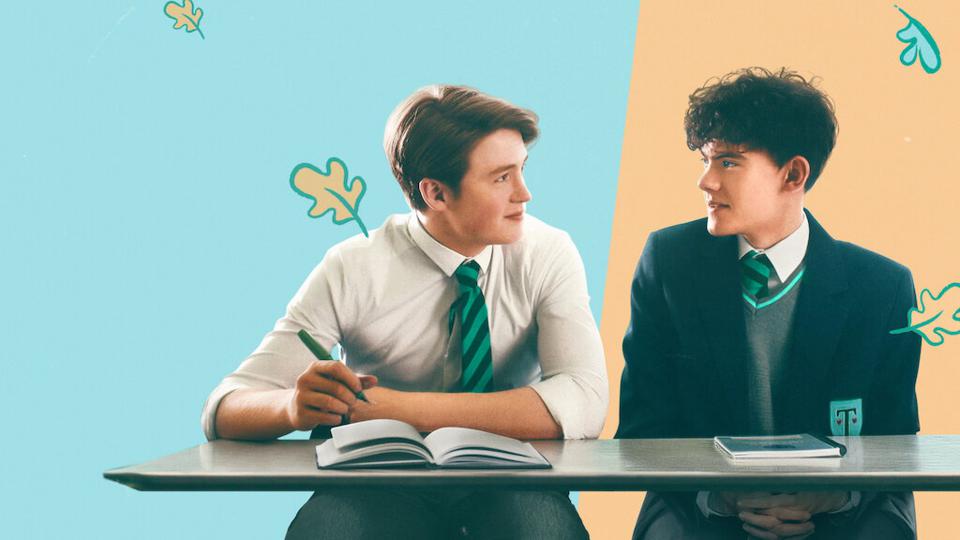Reviewed by Ollie Bell
Heartstopper is a Netflix series based on Alice Oseman’s comics of the same name. It is an uplifting LGBTQ+ drama about friendships and young romance. It depicts two British students, Charlie Spring and Nick Nelson, as they meet, become friends, and develop feelings for each other.
The show and the comics both portray the struggles of Nick figuring out and accepting his bisexuality while Charlie deals with homophobic bullying for being an out gay young man in an all-boys school. Heartstopper has been praised by the LGBTQ+ community for its honest portrayal of a young queer romance, jam-packed with longing looks, secret kisses and teenage pining, which is often only seen in heterosexual relationships.
LGBTQ+ youth often grow up feeling isolated and alienated from their fellow peers due to the stigma that still exists in society. It’s quite difficult to find positive queer representation in media. Often LGBTQ+ characters are there for tokenistic representation or just stereotypical.
Heartstopper gives young LGBTQ+ people a representation of themselves in a growing toxic climate. Internationally, LGBTQ+ rights, especially trans rights, are under attack. The Florida ‘Don’t Say Gay’ bill and other bills out right ban the discussion of sexuality and gender in classrooms, furthering the shame and isolation young LGBTQ+ students face in schools. Heartstopper gives LGBTQ+ young people a way of seeing themselves in a positive light. It has also given LGBTQ+ fans the courage to be themselves. One fan even used a scene of Nick coming out to his mam as a way to come out as queer to their parents.
It must be acknowledged that while Heartstopper is a positive show, Netflix has been complicit in having transphobic shows on their platform. Last October, Netflix staff protested the transphobic Dave Chappelle comedy show in which he stated that LGBTQ+ people were too sensitive and declared himself ‘Team TERF’. It shows how Netflix is perfectly fine with capitalising off homophobia and transphobia when it suits them while also profiting off much needed LGBTQ+ representation. Along with that Netflix has the habit of cancelling shows focusing on LGBTQ+ people like I’m Not Okay With This and Everything Sucks.
Heartstopper is a refreshing look at LGBTQ+ students as they navigate growing up and exploring their sexuality. When media depictions of positive LGBTQ+ people are lacking, shows like Heartstopper are important to giving young queer people a voice and helping them come out.
While Heartstopper displays the joys of romance, it also portrays the challenges young LGBTQ+ students face. Both Charlie and Tara, a young trans girl, deal with homophobic and transphobic bullying in school, which is fostered by the school being separated into boys and girls. Charlie has mental health issues like anxiety and low self-esteem because of this bullying, which is all too common for LGBTQ+ youth in Ireland. BeLonGTo’s ‘Life in Lockdown: One Year Later 2020’ survey found 97% of young LGBTQ+ people were dealing with anxiety, stress, and depression.
When Nick Googles ‘Am I Gay’, news articles about homophobia and LGBTQ+ discrimination flash in between ‘Signs You Might Be Gay’ listicles. Showing how despite the progression of LGBTQ+ rights, homophobic attacks and conversion therapy are still prevalent today.












